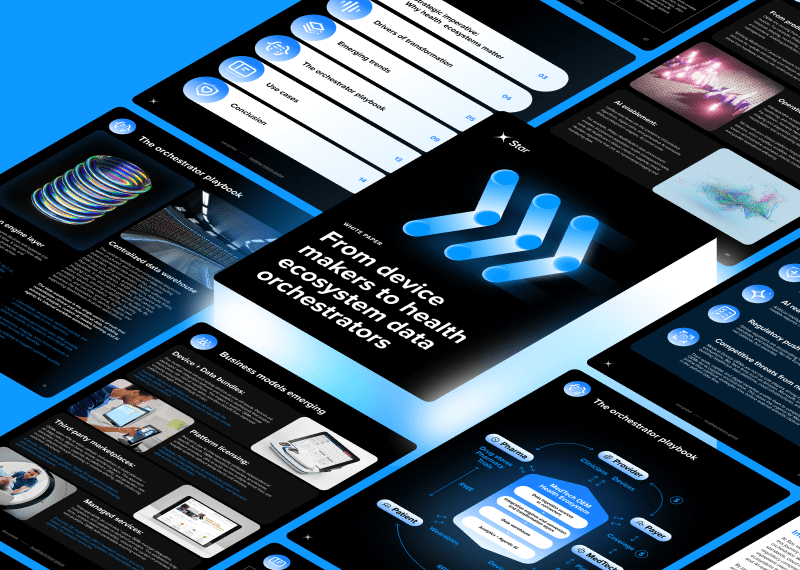Recent research shows AI-driven solutions can reduce healthcare administrative costs by 13-25% and improve operational efficiency by up to 30%. With strategic AI applications, healthcare providers are transforming patient care from reactive to proactive, addressing cost challenges and staff shortages. But effective AI implementation requires careful planning and strict compliance with regulatory standards.
Our comprehensive report provides actionable insights for healthcare providers on integrating AI across the entire patient journey — from initial symptom assessment to treatment and follow-up care:
- Optimizing operations: How AI can automate administrative tasks, streamline patient scheduling, reduce no-shows and efficiently manage inquiries.
- Personalize patient experiences: Discover how AI personalizes each patient’s journey, making care more accessible, treatments easier to understand and driving better health outcome.
- Reduce operational inefficiencies: Discover how AI streamlines administrative tasks, automates admission and discharge processes and enables clinicians to access patient information more efficiently.
In our recent webinar How AI transforms patient journeys and decreases the cost of care, Star experts Martin Fix, Technical Director and Co-head of the AI Innovation Hub, and Agnieszka Billewicz, Design Director, discuss the emerging need for AI integration in healthcare. With only 6% of healthcare leaders having a fully developed AI strategy and 50% actively working to create one, the pressure is on for healthcare organizations to innovate and meet rising patient expectations.
Martin and Agnieszka provide actionable insights into using AI to enhance patient experiences, reduce operational costs and create competitive advantages through intelligent automation. They explore various strategies for software vendors to support healthcare providers in addressing critical challenges in administrative efficiency and care coordination, along with a clear AI integration roadmap to drive better patient outcomes.







